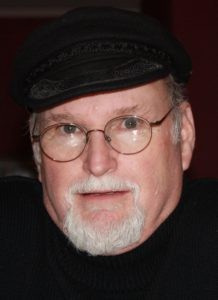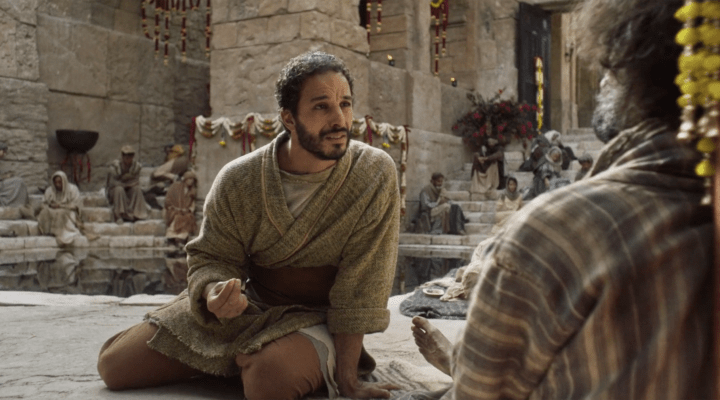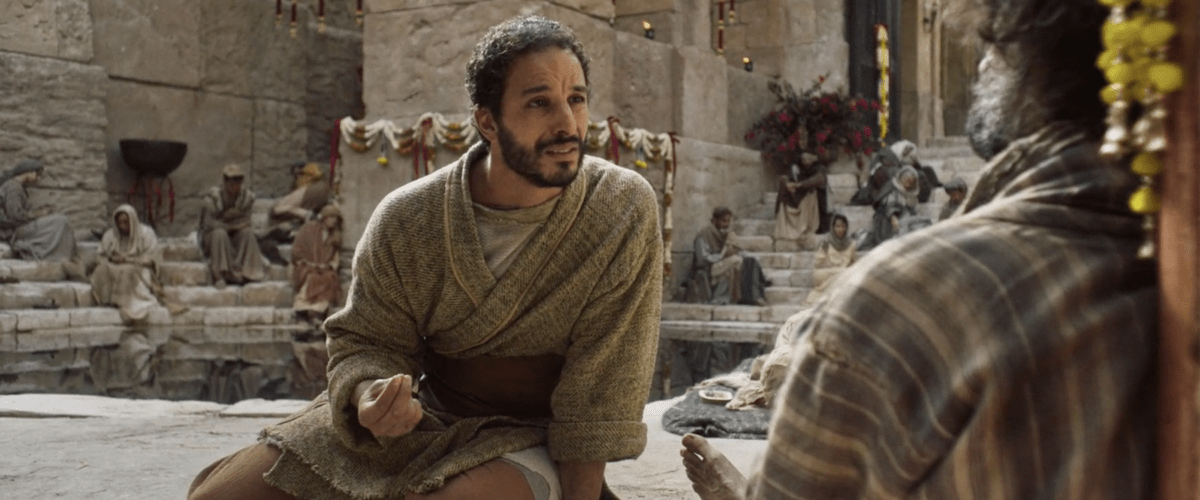One of the compelling parts of the story telling of the TV series “The Chosen” is the reverent sharing of back stories that could have tied these scriptural people together.
One of the best has emerged in Season 2, episode 4. It is a silent story of two brothers — Simon (who becomes the Zealot) and his brother (unnamed in the Scripture) Jesse, who Jesus healed at the pool of Bethesda. What we don’t know from Scripture is any connection the paralytic at the well might have had with Simon the Zealot but with great story-telling we are treated to a “what if” scenario.

Michael Chancellor
What I love about this episode is that it surfaces two different trajectories for two brothers in the same family. One suffered a childhood accident that left him paralyzed. The other survived his birth but his mother didn’t. “The Chosen” adds a name to the paralytic, Jesse.
With these two brothers growing to manhood, we see two emotions surface that sets the direction of their lives. Jesse is dependent on others, Simon is “the other” for a time. However, Simon witnesses a scene, and his anger toward Rome turns to hate and leads him to seek out the Zealots, where he finds community, training and a purpose for his life.
The only problem is he leaves Jesse, his older brother, without help and eventually without hope.
This episode portrays two staggering emotions in our time and in our world. In fact, we do not even need to leave our state or nation to find these powerful driving forces around us.
The last five years have not created movements of hate. Rather they have just surfaced them and given them, in the process, some reputability.
Nothing says your hate is OK more than a hater in the White House who stumbles to condemn haters. So now this powerfully destructive emotion is surfaced in America and sadly around the world. Hate is what drives the white supremacy movement in America. Hate is what drives the Neo-Nazis in America and around the world. Hate is what drives the terrorist groups and corrupt individuals in places of authority and responsibility. Not all law enforcement are haters (only a few are) but there is a point at which only the uniform (authority) lingers in the mind of an unjust act whether it is a Roman soldier or a law enforcement officer.
“Hate is always a fire.”
Hate is always a fire. It is a fire within, and when it leaks out in speech or action it is an incendiary force that lashes out, kills, burns or destroys. It is the nature of hate. That is why the presence of haters is so toxic in any society or culture or nation.
There is another emotion that surfaces in this episode that probably is shared by more people then and now than hate. That emotion is hopelessness. That was the story of Jesse, named and identified as the paralytic at the pool of Bethesda by the writers of “The Chosen.” In Scripture, he does not have a name, like many of the others Jesus healed.
This emotion is both powerful and breaking. There is hope and its opposite, hopelessness. Hope is essential to life. In the trinity of virtues Paul mentions in 1 Corinthians 13, hope snuggles between faith and love. Hope is what gets most of us out of bed in the morning. Hope is what takes us to the cancer clinic for treatments. Hope is what has us on our knees over our own issues or the issues of those we love. Hope is calling out to God.
Without hope, people die.
Suicide often is an action to make the pain stop, and it becomes the solution because the person has lost hope. However, not everyone who has lost hope takes their own life. Therein is the corrosive, crushing, crippling power of hopelessness. It extinguishes that hope in the human heart.
“What people of privilege (such as myself) have difficulty understanding is how racism and poverty grind down a person’s hope until they have nothing left.”
What people of privilege (such as myself) have difficulty understanding is how racism and poverty grind down a person’s hope until they have nothing left. In Robert Frost’s “Death of a Hired Man,” he describes a man who had left him and returned to him to die with these words, “and nothing to look backward to with pride and nothing to look forward to with hope.”
Racism and poverty create boundaries beyond which one cannot go, ceilings beyond which one cannot rise, limitations one cannot exceed, poverty of such nature it cannot be remedied, and shame that cannot be erased no matter how hard one tries. Structural racism simply states you are not good enough, will never be good enough, are not worthy of time or attention because in the end you are insufficient. It is a paralyzing, haunting, taunting chant one cannot escape because every turn brings another obstacle.
There are some powerful souls who escape such racism and poverty and in their magnanimous efforts call others to believe, hope and achieve. Some heed the call and follow such souls. Others cannot imagine such a future.
Every person in this world was created to live in hope. Even after they have wrecked their lives and the lives of others, they need hope. Without it, life becomes colorless, tasteless, deaf and blind.
That is what Jesus puts to Jesse when he says, “Do you want to get well?”
That is the question Jesus asks of us all.
Michael Chancellor served 33 years as pastor of four Baptist churches in Texas, seven years as a mental health manager in a maximum-security Texas prison and now is a therapist in private practice in Round Rock, Texas.


